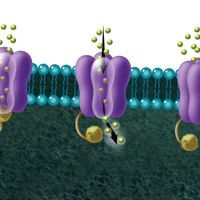Login
Subscribedrug development, neuroscience

Eli Lilly Claims New Drug Can Slow Alzheimer’s-Related Decline
Lisa Winter | Mar 16, 2021 | 2 min read
Patients who received the drug fared better cognitively and functionally than those taking placebo, but still experienced losses in performance.

Questions Raised About Widely Used Blood-Brain Barrier Model
Catherine Offord | Feb 16, 2021 | 6 min read
A study has sparked controversy by suggesting that cells made using a popular lab protocol have been misidentified, with potentially serious repercussions for brain research. Critics say the significance of the findings has been overstated.

Spectrum Reporting Prompts New Review of Common Drug
Jaclyn Jeffrey-Wilensky | Feb 11, 2021 | 3 min read
The review of more than two dozen studies finds aripiprazole has side effects and does not change core autism features, but parents report improvements in self-injury, tantrums, and other challenging behaviors.

New Drug Combo for ALS Slows Decline in Small Clinical Study
Jef Akst | Sep 3, 2020 | 3 min read
After six months, patients with fast-progressing amyotrophic lateral sclerosis who had received the experimental treatment had less loss of function than those who received a placebo.

Interactive: Biomarkers in Blood Provide a Window into the Brain
Shawna Williams | Dec 1, 2019 | 1 min read
A look at some of the circulating molecules that may indicate various Alzheimer’s pathologies and serve as the bases of noninvasive tests for the disease.

The Hunt for a Blood Test for Alzheimer’s Disease
Shawna Williams | Dec 1, 2019 | 10 min read
Researchers hope circulating biomarkers will enable earlier detection and better monitoring of the neurodegenerative disorder—and perhaps help usher in new treatments.

Parkinson’s Patient Transplanted with Neurons Derived from iPSCs
Ashley P. Taylor | Nov 14, 2018 | 2 min read
This is the first time researchers have tested the use of the reprogrammed stem cells in the human brain.

Drug Approval Could Boost Research on Marijuana Treatment for Autism
Jessica Wright | Aug 17, 2018 | 4 min read
Epidiolex, a cannabis-derived medicine for epilepsy, will prompt federal regulatory changes that could crack open access to study the plant.

Targeting Sodium Channels for Pain Relief
Catherine Offord | Jan 1, 2018 | 10+ min read
The race to develop analgesic drugs that inhibit sodium channel NaV1.7 is revealing a complex sensory role for the protein.

Sex Differences in Opioid Analgesia: A Complicated Picture
Catherine Offord | Jan 1, 2018 | 5 min read
Researchers are beginning to tease apart the mechanisms underlying differences in how males and females respond to powerful painkillers.

Frog Skin Yields Potent Painkillers, but None Clinic Ready
Shawna Williams | Jan 1, 2018 | 2 min read
Decades after their discovery by bioprospectors, amphibian-derived analgesics continue to attract scientific attention.

Sourcing Painkillers from Scorpions’ Stings
Abby Olena, PhD | Jan 1, 2018 | 2 min read
Compounds in the arachnids’ venom interact with ion channels to both cause and block pain.

Toxin from a Dangerous Fish Delicacy
Kerry Grens | Jan 1, 2018 | 2 min read
In tiny doses, the pufferfish’s tetrodotoxin can be turned into a pain-relieving ion channel blocker.

Mining Spider Toxins for Analgesic Clues
Catherine Offord | Jan 1, 2018 | 2 min read
Arachnids harbor a plentiful array of molecules that target mammalian pain receptors.

Researchers Mine Centipede Toxins for Analgesics
Catherine Offord | Jan 1, 2018 | 1 min read
Venomous centipedes may harbor a clue to the creation of a successful pain-killing compound for humans.

Novel Analgesics at a Snail’s Pace
Bob Grant | Jan 1, 2018 | 3 min read
Studying cone snail venom has yielded novel pain pathways, but the peptides that function as toxins are difficult to translate into drugs.

Snake Venoms Cause and Block Pain
Kerry Grens | Jan 1, 2018 | 2 min read
Painful snake bites may hold clues to developing analgesic drugs.

Infographic: A Painful Pathway
Catherine Offord | Dec 31, 2017 | 2 min read
Since the mid-2000s, the voltage-gated sodium channel NaV1.7 has emerged as a promising target for a new class of analgesics.

Getting Drugs Past the Blood-Brain Barrier
Amanda B. Keener | Nov 1, 2017 | 10+ min read
To treat neurological disease, researchers develop techniques to bypass or trick the guardian of the central nervous system.

Infographic: Breaking into the Brain
Amanda B. Keener | Oct 31, 2017 | 2 min read
The blood-brain barrier is a collection of specialized cells and proteins that control the movement of molecules from the blood to the central nervous system.